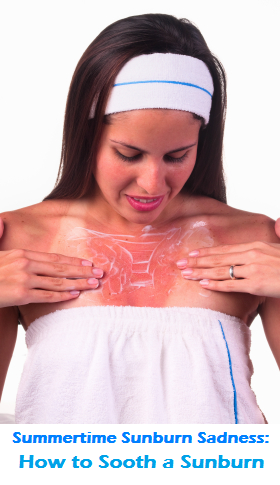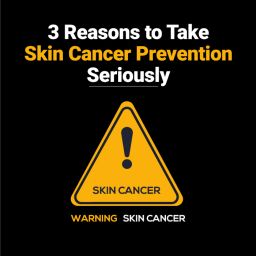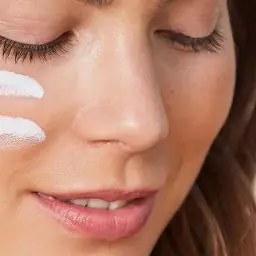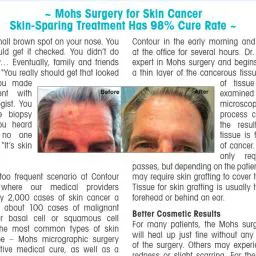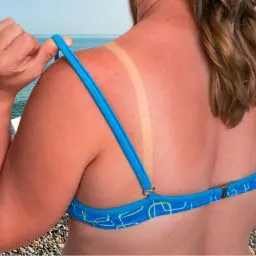Choosing a Tennis Worthy Sunscreen
Protect Your Kin, Use a High SPF Sunscreen
Slather the Sunscreen and Protect Your Skin, You May Prevent Skin Cancer and Look Younger!
Use Sunscreen at the Tennis Tournament
It’s always exciting when the world-class BNP Paribas Open comes to town. This year’s dates are March 4-17. But somehow, this tournament not only brings the hottest professional tennis athletes, it frequently brings hotter than average temperatures for this time of year, sometimes even reaching record highs.
Even if you have box seats at the Indian Wells Tennis Gardens, sun comes in. If you’re in the loge seats for hours, you know how intense the sun can be. To fully enjoy the tennis matches this year, be sure to not only apply sunscreen before you come, but bring your sunscreen with you to reapply it because even the best sunscreen in the world is only as good as its application.
Tips on Selecting a Sunscreen
Newer FDA labeling requirements now make it easier to choose an effective sunscreen. Products have to state how much protection they actually provide and be scientifically tested to back up those claims.
Broad Spectrum
This is the most important thing to check. When the label proclaims a sunscreen to be broad spectrum that means it’s been tested and proven to protect you from both UVA and UVB rays. It used to be labels simply stated an SPF number. The problem is even a high SPF number only indicates a product’s protection from UVB – the shorter wavelengths responsible for sunburn. You need protection from longer UVA wavelengths, too – the ones that penetrate deeper and cause skin cancer, brown spots and wrinkling. (A quick way to remember this is – think B for burn and A for aging.) In order for a sunscreen to claim it protects against skin cancer and not just sunburn, the FDA now requires it must offer broad-spectrum protection.
Sun Protection Factor (SPF)
Again, SPF only gauges protection from UVB radiation. At Contour Dermatology, we’ve always recommended a minimum SPF 15. This coincides with the FDA’s ruling a sunscreen must be SPF 15 or higher in order to claim it protects against skin cancer. A cap has been set on this number at SPF 50+ since anything over 50 doesn’t give you much more protection. While we recommend and sell sunscreens with an SPF 50+, please don’t let that lull you into a false sense of security and forget to reapply at least every two hours.
Chemical Sunscreen Vs. Sunblock
Then, there are even more factors to consider when selecting a sunscreen. Do you choose a chemical sunscreen or a physical sun blocker? Chemical sunscreens work by absorbing the UV rays. Physical sunscreens such as minerals like titanium dioxide and zinc oxide reflect the light to keep the harmful rays away. Some people don’t like the initial white cast that physical sunscreens can produce on the skin. There are virtually no allergies reported with the mineral sunscreens and another plus is there is no evidence of hormone disruption issues.
Both chemical and physical sunscreens can be broad spectrum. Just be sure to read the label. One additional label is “water resistant.” The FDA no longer allows the words “water proof or sweat proof.” However, sunscreens may be deemed water resistant. Based on standardized testing, it’s either up to 40 or 80 minutes. Again, re-application is key.
At Contour Dermatology, we recommend our patients use a hybrid sunscreen containing both chemical and physical methods of protection. An excellent example of this is the current favorite of the women in our office as well as many of our patients – Neova DNA Damage Control SPF 40 that also has superior antioxidant protection. Obagi also has an elegant non-greasy matte finish sunscreen formula. The key is to find a sunscreen that you’ll use with consistency.
Is SPF in Makeup Enough?
There are some excellent formulations available that include SPF, but our recommendation is still to use a dedicated sunscreen. If your makeup has sunscreen in it, our advice is just consider it another layer.
Consider Sun-Protective Clothing
Still, some people, especially men, just don’t like to put lotion on their body. Sun protective clothing which blocks out 98% of UVA/UVB rays is an excellent way to increase your sun protection. In our quest to find fashionable clothing ourselves, Contour Dermatology now offers an attractive line that is recommended by the Skin Caner Foundation and approved by the Melanoma International Foundation.
Hats are important to protect your head and face from the sun. Hats should be more than a baseball style cap. You get much better protection with a broad-brimmed hat. If you’re not wearing a hat, powered sunscreen is available to protect your scalp. Oh, and there’s nothing wrong with carrying an umbrella for sun coverage either.
One in Five Americans Develops Skin Cancer
Protecting yourself from skin cancer is certainly the main reason to be diligent about applying and reapplying your sunscreen. The statistics are sobering. One in five Americans will develop skin cancer in their lifetime. While most people know the risks of skin cancer, no one ever thinks it will happen to them. In our practice at Contour Dermatology we detected more than 2,000 skin cancers last year alone, including nearly 100 cases of malignant melanoma.
Remember, proper use of sunscreen and sun protective clothing not only helps prevent sunburn and skin cancer, it can help keep you looking young as it protects against photoaging!
If you have any concerns about moles, questions about sunscreen products, sun protective clothing or would like to learn more about cosmetic treatment of sun-damaged skin, please call (760) 423-4000.
For tickets or information about the 2019 BNP Paribas Open, visit Tickets.






